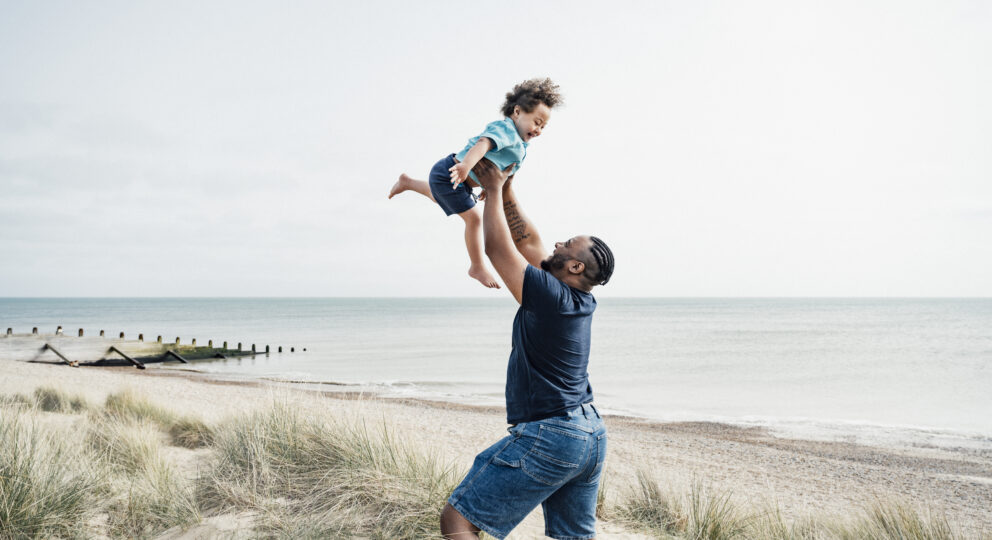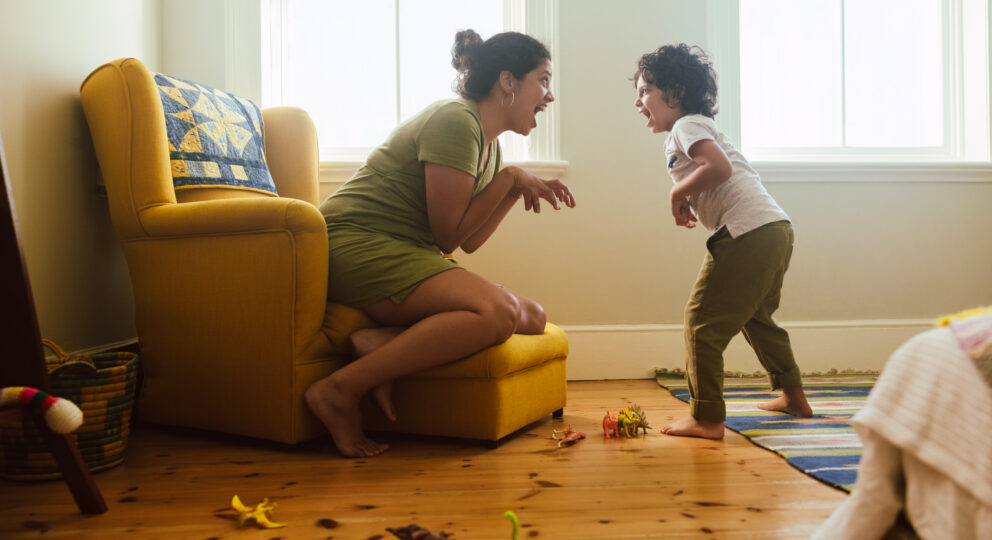
How can different types of play be a means of developing important lifelong skills for your young child? Turns out, science has discovered that the kind of play traditionally associated with “rough- and- tumble dads”, has clear connections with better school achievement, greater impulse control and focus, improved emotional intelligence and even better peer relations. Anyone of any gender – parent or not – can engage in this type of play with the kids in their life.
As adults, we know intellectually that play is important, but as we grow up it’s so easy to relegate that to another data point, instead of action. Play, after all, is serious business. Play is how kids learn about the world around them and about themselves. It is how they communicate and interact with the people around them.
There is a profound and often underestimated value to having playful adults around as kids grow up, too. Research by Ross Parke and Michael Lamb has also revealed some surprising things about play styles, and a sometimes-undervalued style of interacting with kids can be essential for helping children develop emotional regulation and impulse control.

Differing Approaches to Play
Research has identified two general styles that adults use when playing with kids. One is a gentle type of play that focuses on visuals, learning, and verbal communication. This more gentle play style also tends to include encouraging kids to stick with something that they do not find immediately interesting. Think arts and crafts, storytime, learning to bake together, or doing giant puzzles on the floor together.
The other is a more rough-and-tumble, energetic style of play that tends to switch directions more often. This is a type of play that focuses on physicality and changes as soon as the child is no longer interested. This could be “who can hula-hoop the longest” competitions, games of tag in the yard, or carrying kids around the house upside down for as long as they’re laughing about it.
While the research was done in a gender-linked way, and each style can be stereotyped as “mom’s play” or “dad’s play” the reality is that anyone of any gender – parent or not – can engage in either type of play (or both types!) with the kids in their life.

The Real-World Impacts on Children
While the more energetic type of play can sometimes be seen as less educational, the research disagrees. Instead, by having to follow a period of intensely exciting play with sudden boredom, and then switch gears again, kids learn to regulate their emotions more effectively. They also learn patience, and to control their impulses. This leads, according to research, to a laundry list of great outcomes for children. In other words, the “less educational” type of play can, in fact, be just as educational and essential.
In our forthcoming parenting newsletter, you’ll gain access to a wealth of knowledge and science, solutions to common and uncommon parenting problems, practical tips, and inspiring stories. Because every parenting journey deserves a roadmap.

Ways to Inject Energetic Play Into Your Day
As a parent, or as any adult in a kid’s life, there’s a few easy ways to inject energetic play into their life, and it doesn’t have to be a big production or trip to the park. Instead, try taking just a few minutes to:
- Jump across the cracks in the sidewalk.
- If you physically can, carry the kid around and help them pretend that they’re flying.
- Take a 2 minute dance break when switching tasks.
- Get on the floor with the kid and imitate their every move. It will get them giggling, and encourage them to explore movement in new ways.
Want research-backed tips on parenting delivered straight to your inbox?
The Gottman Parenting newsletter is a comprehensive, inclusive resource for parents of children in all ages and stages. Join us as we tackle modern parenting challenges, explore the latest parenting research, and more.
